There has been recent attention, both in the media and by the Small Business Administration (SBA), on the good faith certification required by applicants for Paycheck Protection Program (PPP) loans. The loan application requires a certification that “[c]urrent economic uncertainty makes this loan request necessary to support the ongoing operations of the Applicant.” Recent SBA guidance has also stated that this certification must be made in good faith “taking into account [applicants’] current business activity and their ability to access other sources of liquidity sufficient to support their ongoing operations in a manner that is not significantly detrimental to the business.” PPP FAQ #31. The current guidance, however, does not clearly delineate under what circumstances an entity could be deemed to have not made this certification in good faith.
Given the recent focus on this certification, and the SBA’s apparent attempt to narrow the pool of applicants vying for limited funds, it would be prudent for any applicants and potential applicants to take a hard look at whether the certification was, or will be, truly made in good faith.
On one extreme, the SBA has stated that “it is unlikely that a public company with substantial market value and access to capital markets will be able to make the required certification in good faith, and such a company should be prepared to demonstrate to SBA, upon request, the basis for its certification.” PPP FAQ #31. On the other hand, a small business that is facing insolvency (or already insolvent) if it does not receive the loan should not have much trouble making the certification in good faith.
Between these two extremes, however, businesses should consider one important factor. The size of the loan may lead to greater scrutiny. The SBA has said that it “will review all loans in excess of $2 million, in addition to other loans as appropriate, following the lender’s submission of the borrower’s loan forgiveness application.” PPP FAQ #39. Large loans with large forgiveness amounts will be an audit priority, while smaller loans may be subject to less scrutiny and fewer enforcement actions.
Regardless of size, however, applicants should consider their own finances, projections of future financial conditions, and their ability to remain in operation during these economic times without a PPP loan. Borrowers who are concerned that their judgment may be called into question should take steps to document their analysis of financial need so that there is evidence of the good faith determination of need in the event of an SBA audit.
If an applicant is found to have made the certification in bad faith, the legal ramifications can range from required repayment of the loan with interest and penalties, to fines and even prison time. While harsh penalties, if ever imposed, would likely be reserved for egregious cases, applicants should take the certification seriously. An additional consideration for businesses is public perception. Certain large corporations have been harshly criticized in the media for taking large sums of money and leaving small entities unable to access the program.
If an entity is concerned that the certification it made in connection with its PPP application is not accurate, the SBA is allowing a safe harbor for borrowers to repay the loan in full by May 14, 2020, in which case the borrower will be deemed by SBA to have made the required certification in good faith. However, this only applies to entities that made an application prior to April 23, 2020. Entities that submitted an application on or after this date could voluntarily repay the loan and not seek forgiveness, which may reduce the likelihood that they will be subject to an audit or enforcement action; however, there is no current guidance that would necessarily provide immunity for these entities.
Additional guidance is anticipated on the SBA’s review and audit of applications, however, applicants should take the time now to consider or reconsider whether their certification was made in good faith, based on each applicant’s unique circumstances.
Partridge Snow & Hahn’s Business Law Group is ready to answer questions regarding the PPP loan application process. The contents of this advisory are based on SBA guidance available as of April 30, 2020.


